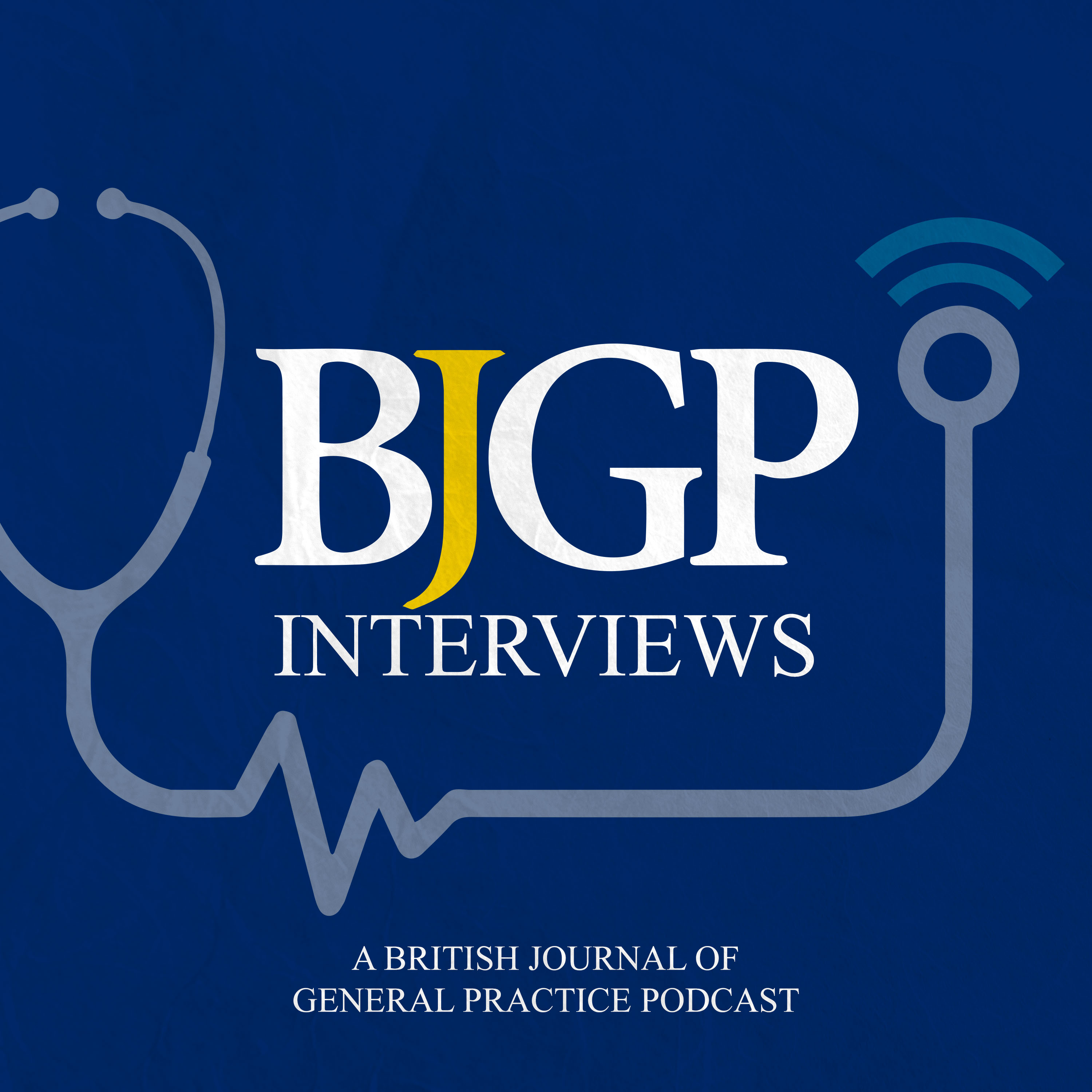 |
BJGP InterviewsEssential updates on the latest primary care research and clinical practice Author: The British Journal of General Practice
Listen to BJGP Interviews for the latest updates on primary care and general practice research. Hear from researchers and clinicians who will update and guide you to the best practice. We all want to deliver better care to patients and improve health through better research and its translation into practice and policy. The BJGP is a leading international journal of primary care with the aim to serve the primary care community. Whether you are a general practitioner or a nurse, a researcher, we publish a full range of research studies from RCTs to the best qualitative literature on primary care. In addition, we publish editorials, articles on the clinical practice, and in-depth analysis of the topics that matter. We are inclusive and determined to serve the primary care community. BJGP Interviews brings all these articles to you through conversations with world-leading experts. The BJGP is the journal of the UK's Royal College of General Practitioners (RCGP). The RCGP grant full editorial independence to the BJGP and the views published in the BJGP do not necessarily represent those of the College. For all the latest research, editorials and clinical practice articles visit BJGP.org (https://www.bjgp.org). If you want all the podcast shownotes plus the latest comment and opinion on primary care and general practice then visit BJGP Life (https://www.bjgplife.com). Language: en Genres: Health & Fitness, Medicine, Science Contact email: Get it Feed URL: Get it iTunes ID: Get it |
Listen Now...
Faecal calprotectin in the over-50s: Rule-out test or red flag?
Episode 219
Tuesday, 11 November, 2025
Today, we’re speaking to Dr Rob Perry, who is a Gastroenterology Clinical Research Fellow based at Imperial College London.Title of paper: Evaluating the Role of Faecal Calprotectin in Older AdultsAvailable at: https://doi.org/10.3399/BJGP.2025.0169There is considerable uncertainty surrounding the use of FC as a diagnostic test in older adults, with varying suggestions in guidelines and a lack of data in the wider literature. This study investigates the performance of FC in older adults (≥50 years), compared to a younger cohort, with a view to guide its correct use in a primary care setting. These data suggest that FC is a sensitive test for IBD and organic gastrointestinal pathology in both groups. However, concerns remain over its PPV and specificity, particularly in older adults, and it should not be used if colorectal cancer is suspected.Transcript This transcript was generated using AI and has not been reviewed for accuracy. Please be aware it may contain errors or omissions.Speaker A00:00:00.880 - 00:00:49.180Hello and welcome to BJGP Interviews. I'm Nada Khan and I'm one of the Associate Editors of the bjgp. Thanks for taking the time today to listen to this podcast. Today we're speaking to Dr.Rob Perry, who is a gastroenterology Clinical Research Fellow based at Imperial College London. We're here to talk about the paper he's recently published here in the BJGP titled Evaluating the Role of Fecal Calprotectin in Older Adults.So thanks, Rob, for joining me here to talk about your work.And I guess I just really want to preface this by saying that a lot has changed in the last few years just in terms of testing for inflammatory bowel disease and bowel cancer in general practice. But I wonder if you could just talk us through this, some of the different guidelines and why you wanted to do this study.Speaker B00:00:49.660 - 00:02:24.450Oh, yes, thank you for having me.Firstly, and the rationale for the study is that, you know, consultations for gastrointestinal symptoms make up a large number of consultations in primary care. I think the figures around 10%.And whilst fecal cow protection is an increasingly well established test for differentiating between inflammatory bowel disease and functional or other gastrointestinal or non inflammatory gastrointestinal diseases, its role in older adults is far less well established.With varying guidelines for clinicians in primary care, the NICE guidelines make no specific mention, for example, of age, other than that calprotectin should not be used where age is considered a risk factor in the context of certain symptoms. For suspicion of cancer, the BSG guidelines on IBD use a cutoff of 40, above which they suggest calprotectin is not used.The something called the NICE York Fecal cow protectant care pathway suggests an age cut above 60, which is a NICE endorsed pathway. So there's some uncertainty there in the literature about which cutoff should be used for fecal cow protectin.And the reason any cutoff is suggested is because data has previously shown that calprotectin lacks sensitivity for diagnosing colorectal cancer.And as age is considered a risk factor for colorectal cancer, guidelines normally mandate earlier endoscopic evaluation of patients with GI symptoms in older age groups.Speaker A00:02:24.530 - 00:02:39.170And can you just talk us through briefly what you did here? So you looked at patients referred for a colonoscopy at one single centre, so at Imperial College Healthcare Trust.But just talk us through...









